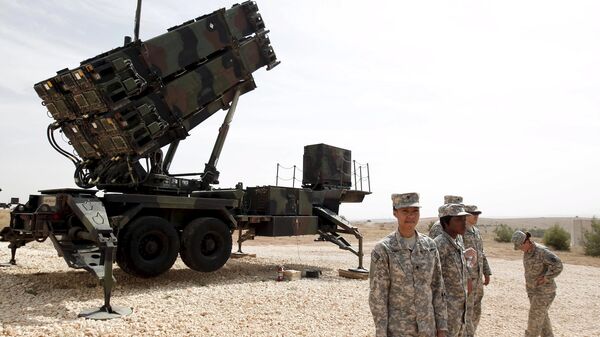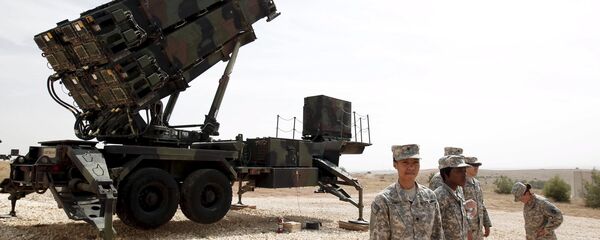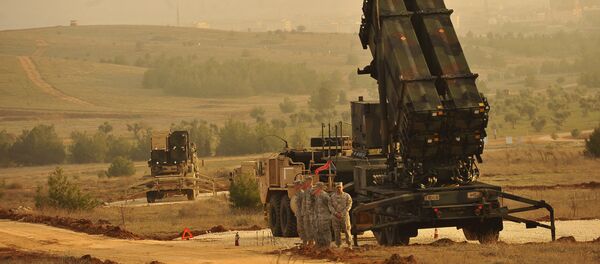On Thursday, Russian ambassador to NATO Alexander Grushko told Sputnik in an interview that the deployment of the Patriot systems in Turkey was being justified by a non-existent threat of missile attack.
Caldicott, author of "War in Heaven" and a global expert on nuclear and ballistic missile threats, agreed with Grushko’s analysis.
Deploying the Patriot systems "makes no sense from a military point of view: None at all," she said.
Turkey was going along with the ploy to win favor in both Washington and Brussels, Caldicott explained.
"Turkey wants to be part of the European Union," she added.
The move was puzzling since Turkey has been a NATO member for 60 years and enjoys the umbrella of protection the alliance provides, she recalled.
AntiWar.com senior analyst Jason Ditz agreed that the deployments of the Patriot missiles in Turkey, which began following the June 2012 shoot-down of a Turkish warplane off the Syrian coast, could best be described as a political deployment.
"What that really means is that there's no strategic reason for such deployments, and no real point to having them there, except for showing that NATO is ‘doing something’ to support Turkey in theory," he explained.
The weapon system has been rotated in and out of Turkey for about four years, Ditz recalled.
Russia's concern with the presence of Patriot batteries is that they would be used in a scenario in which NATO imposes a no-fly zone over northern Syria, something Turkey has been pushing for years, Ditz noted.
"Since Russia operates warplanes in northern Syria regularly, a no-fly zone would be directly against their own regional interests," he said.
However, since the Islamic State has no known missile or air capabilities of its own, deploying the missile defense technology against it is a meaningless gesture, Ditz concluded.



